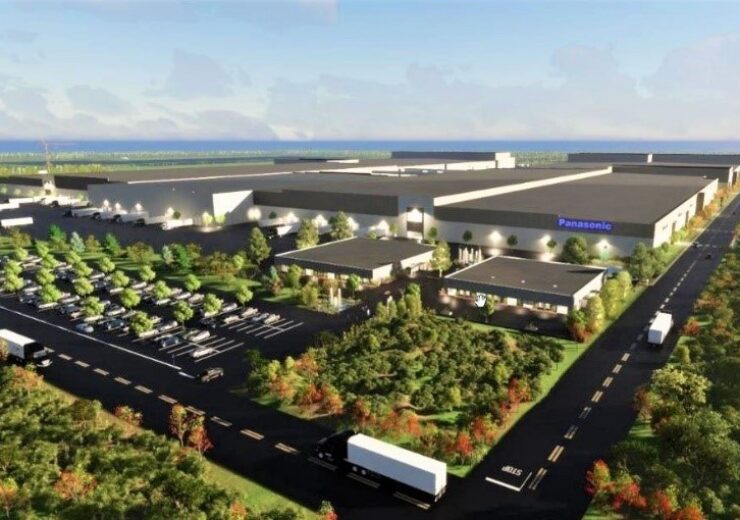The Kansas facility, which will begin mass production by March 2025 and have annual capacity of 30GWh, is expected to contribute to the company's goal of reducing its own carbon dioxide emission to virtually net-zero by 2030

Panasonic Energy begins construction on its EV and battery manufacturing plant in Kansas. (Credit: PRNewswire/Panasonic Corporation of North America)
Panasonic Energy has broken ground on its new $4bn lithium-ion battery manufacturing facility in De Soto, Kansas.
To be located at the Astra Enterprise Park site, the project has received approval from the company’s board of directors.
Panasonic Energy aims to begin mass production at the new manufacturing plant by March 2025 with an annual capacity of around 30GWh to supply electric vehicle (EV) manufacturers in the US.
Panasonic Energy president and CEO Kazuo Tadanobu said: “This ground breaking in Kansas is an important step towards expanding our production capacity in North America to meet the rapidly growing demand for lithium-ion batteries.
“With our leading technology, proven expertise, and the state of Kansas as a critical partner, we will continue driving the industry forward while pursuing a more prosperous and sustainable future for our society.”
Panasonic Energy has awarded contracts for the site preparation of the EV battery manufacturing facility to Emery Sapp & Sons and Kissick Construction.
The lithium-ion battery manufacturing facility is anticipated to drive substantial economic activity and opportunities for the local economy, said Panasonic Energy. It is likely to generate up to 4,000 new jobs as well.
Kansas City Area Development Council president and CEO Tim Cowden said: “The Kansas City region, just as it has over the past century, is cementing its rightful place as a leader where transit innovation is occurring.
“We are incredibly proud to stand shoulder-to-shoulder with Panasonic as they revolutionise the global transportation industry from the centre of the most dynamic economy in the world.”
The new battery manufacturing facility is expected to help towards reaching the company’s goal of reducing its own carbon dioxide emission to almost net-zero by 2030 and contributing to avoided emissions of 300 million tons by 2050.
Earlier this year, the Japanese group announced plans to invest nearly $5bn in growth areas such as EV batteries, supply chain software, and technology from fiscal 2023 to 2025.


